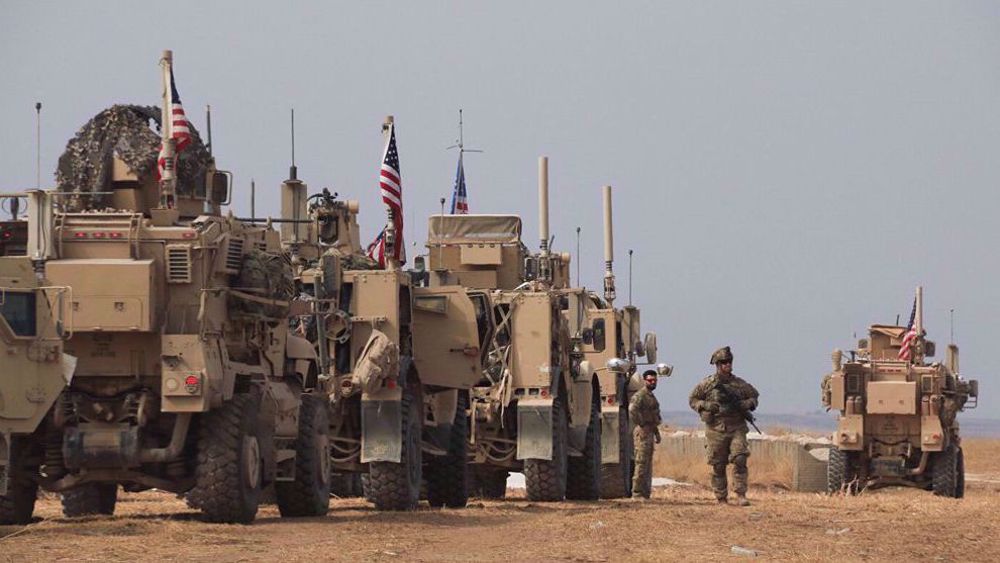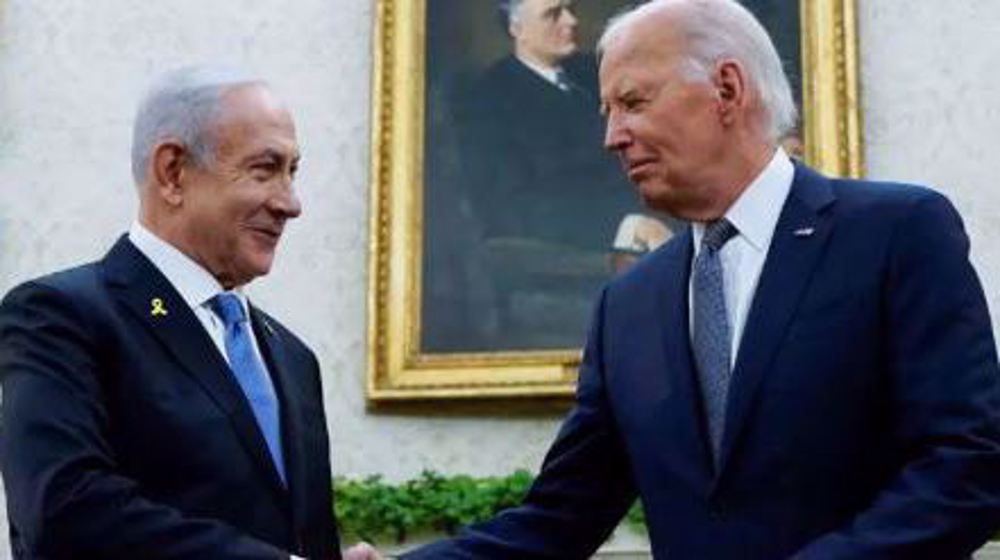Report reveals how Iran destroyed 16 warships in simulated war with US
As tensions remain high between Iran and the United States in the Persian Gulf region, a new report has shed light on a controversial US military exercise where the American forces famously lost a simulated offensive aimed at destroying Iran's defenses.
The war games, dubbed Millennium Challenge 2002, involved two groups of forces in blue and red, with the former playing the role of American forces on the offensive and the latter simulating an Iran-like Middle Eastern country that was supposed to defend itself, according to a report published by National Interest on Monday.
The US military reportedly spent more than $250 million on the exercises and as part of it, it would be fielding advanced technology it didn't plan to implement until at least five years later.
During the exercises, the blue forces first handed red forces commander Lt. Gen. Paul Van Riper a surrender ultimatum and gave him 24 hours to yield.
Van Riper turned down the offer and the blue forces mounted an offensive with the same characteristics as the so-called pre-emptive strikes that were key to then-President George W. Bush’s military doctrine.
At that point, General Van Riper began pounding the US forces using a salvo of cruise missiles and rockets from land-based units, civilian boats, and low-flying planes.
The counter-strike was so heavy that all of the blue forces’ electronic systems and sensors were overwhelmed and General Van Riper’s forces were able to destroy a total of 16 warships, including an aircraft carrier.
Experts said at the time that in a real world scenario of the battle, some 20,000 US forces would have been killed.
But the red forces did not stop there, as soon Van Riper ordered his armada of small boats – similar to ones Iran has deployed to the Persian Gulf – to launch a second wave of attacks and take out another portion of the blue forces’ warships.
The damage from the second attack was aggravated due to the blue forces’ inability to detect the small boats.
“In less than 10 minutes, the whole thing was over and Lt. Gen. Paul Van Riper was victorious,” Blake Stilwell, an American journalist, wrote in a separate article published by We Are the Mighty in mid-September.
Micah Zenko, another journalist, wrote in an article for War on the Rocks that Iran’s “ability to render a US carrier battle group — the centerpiece of the US Navy — militarily worthless stunned most of the MC ’02 participants.”
The embarrassing defeat led US military planners to rig the rest of the drill in a way that would ensure American forces a victory.
General Van Riper complained about the scripted nature of the fighting but was eventually forced to order his forces to follow the war game as it had been pre-defined. Six days into the exercise, van Riper stepped down as commander and served as an adviser until the maneuver ended 17 days later.
David Axe, National Interest’s defense editor, wrote that the US would not have the ability to tweak the rules in a real war scenario.
“If Iran actually were to deploy Van Riper’s brutally effective tactics, it just might inflict even more damage than Van Riper’s own hamstrung forces did in their simulated, and rigged, war,” he wrote.
The United States has been pushing over the past few weeks to form a coalition that would supposedly protect shipping in the Persian Gulf following a series of mysterious attacks on oil tankers in the Strait of Hormuz and the Sea of Oman.
Washington has accused Iran of having a hand in those attacks, a claim Tehran has strongly rejected. Tehran has warned that such sabotage operations may be part of a general ploy to target Iran amid increasing regional tensions.
The US has subsequently sent troops and military equipment to the region, asking its allies to join the coalition.
Iran says gas supply to Iraq flowing normally
UAE says 3 Uzbeks arrested over Israeli-Moldovan rabbi's murder
Lebanon, Israel almost 'close' to ceasefire deal, officials say
Heavy rains flood tents in Gaza as Israel intensifies attacks
VIDEO | Press TV's news headlines
Iran warns UN credibility at risk amid Israel’s campaign of genocide
Embassy in Tehran flagged for excessive electricity usage
12 killed as Israel strikes Lebanon’s historic city of Tyre












 This makes it easy to access the Press TV website
This makes it easy to access the Press TV website